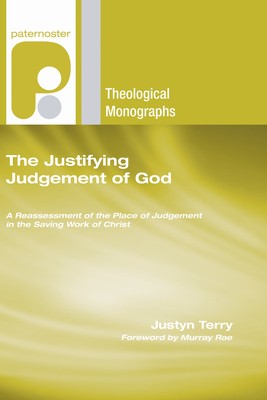
- We will send in 10–14 business days.
- Author: Justyn Terry
- Publisher: Wipf & Stock Publishers
- ISBN-10: 1498251013
- ISBN-13: 9781498251013
- Format: 15.2 x 22.9 x 1.6 cm, hardcover
- Language: English
- SAVE -10% with code: EXTRA
Reviews
Description
This monograph argues that the doctrine of atonement may be presented more coherently by recognizing judgement as the principle metaphor of the reconciling work of Christ. Judgement, understood not only as condemnation but as the whole process of bringing about justice, provides the pattern to which victory, redemption, and sacrifice may be compared and to which they should be related. The first section is a study of twentieth-century British atonement theology to understand the assumptions that give rise to the difficulties in proclaiming the atonement. The second section examines Karl Barth's account of reconciliation in terms of the judgement of Jesus Christ, and its relationship to victory, redemption, and sacrifice. The proposal is made that judgement is the paradigmatic metaphor of the doctrine of atonement. The implications of this claim are then considered for the response to the work of Christ, and how repentance, baptism, Eucharist, and holiness are related to judgement.
EXTRA 10 % discount with code: EXTRA
The promotion ends in 20d.09:01:01
The discount code is valid when purchasing from 10 €. Discounts do not stack.
- Author: Justyn Terry
- Publisher: Wipf & Stock Publishers
- ISBN-10: 1498251013
- ISBN-13: 9781498251013
- Format: 15.2 x 22.9 x 1.6 cm, hardcover
- Language: English English
This monograph argues that the doctrine of atonement may be presented more coherently by recognizing judgement as the principle metaphor of the reconciling work of Christ. Judgement, understood not only as condemnation but as the whole process of bringing about justice, provides the pattern to which victory, redemption, and sacrifice may be compared and to which they should be related. The first section is a study of twentieth-century British atonement theology to understand the assumptions that give rise to the difficulties in proclaiming the atonement. The second section examines Karl Barth's account of reconciliation in terms of the judgement of Jesus Christ, and its relationship to victory, redemption, and sacrifice. The proposal is made that judgement is the paradigmatic metaphor of the doctrine of atonement. The implications of this claim are then considered for the response to the work of Christ, and how repentance, baptism, Eucharist, and holiness are related to judgement.


Reviews